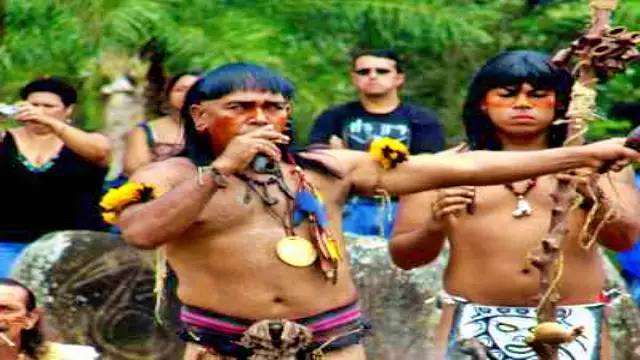The concept of zombies has fascinated people for centuries. Many believe that the idea of the undead comes from African slave traditions. However, recent research suggests a different origin: the beliefs of the Taino people, the indigenous inhabitants of the Caribbean. This article explores these claims, drawing from the writings of Fray Ramon Pane, a Catholic priest who accompanied Christopher Columbus to Hispaniola.
The Taino Beliefs
Fray Ramon Pane documented the beliefs of the Taino people in the late 15th century. His observations provide insight into their views on death and the afterlife. Here are some key points from his writings:
- Spirits on the Road: The Taino believed that the dead would appear to those who walked alone. However, if many people walked together, the spirits would not show themselves.
- The Afterlife: According to Pane, the Taino thought that the dead traveled to a place called Coaybay, located on an island named Soraya.
- Terminology: The Taino had specific terms for the living and the dead. A living person’s spirit was called goeiz, while a dead person’s spirit was referred to as opia.
- Bohutis: Certain individuals, known as Bohutis, claimed they could communicate with the dead. This practice hints at a form of sorcery that was integral to Taino culture.
Sorcery and Revenge
Pane’s writings also describe a fascinating ritual involving revenge for the dead. When a person died, their relatives would seek vengeance through a Bohuti. They would ambush the Bohuti, inflicting severe injuries. The Bohuti, however, would not remain dead. According to the Taino belief, various snakes would come at night to lick the Bohuti’s wounds, allowing him to heal and rise again.
This cycle of violence and resurrection reflects a complex understanding of life, death, and the supernatural. The Taino believed that the Bohuti could not be killed unless certain body parts were removed, emphasizing the mystical connection between life and death.
The Legacy of Taino Beliefs
The influence of Taino culture extends beyond their immediate community. The modern Caribbean term for spirits, obeah, is derived from Taino beliefs. Variations of this term, such as hupia, can be found throughout the Caribbean, showcasing the lasting impact of Taino traditions.
Conclusion
The origins of zombie beliefs are more intricate than many realize. While African traditions have undoubtedly shaped the modern understanding of zombies, the Taino people’s beliefs played a crucial role in forming these ideas. Fray Ramon Pane’s writings provide valuable insights into the spiritual world of the Taino, revealing a rich tapestry of beliefs that continue to influence Caribbean culture today.
FAQs About Zombie Origins
1. What are the origins of zombie beliefs?
Zombie beliefs primarily stem from a mix of African traditions and indigenous Caribbean cultures, particularly the Taino.
2. Who was Fray Ramon Pane?
Fray Ramon Pane was a Catholic priest who documented the beliefs and practices of the Taino people during Columbus’s expedition to Hispaniola.
3. What is the significance of the Bohuti in Taino culture?
The Bohuti were believed to communicate with the dead and played a central role in rituals involving revenge and healing.
4. How did Taino beliefs influence modern Caribbean culture?
Taino beliefs, particularly regarding spirits and sorcery, have influenced various aspects of Caribbean culture, including the term obeah.
5. What is Coaybay?
Coaybay is the name of the afterlife destination in Taino belief, where the dead were thought to go after passing away.
By understanding the Taino influence on zombie lore, we can appreciate the rich cultural history that shapes our modern interpretations of the undead. The interplay of life, death, and the supernatural in Taino beliefs offers a unique perspective on the origins of zombies, reminding us that folklore is often a blend of various cultural narratives.

